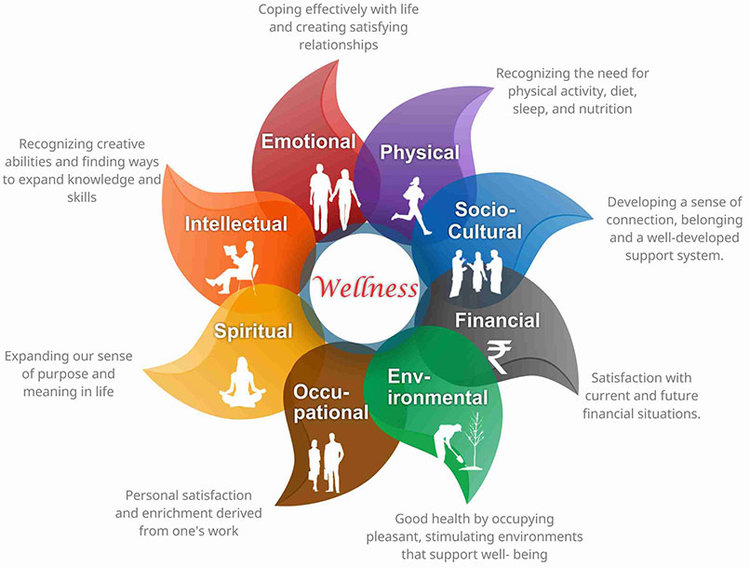In the realm of wellness, the pursuit of physical fitness and spiritual equilibrium are often seen as disparate entities, operating in parallel but seldom intersecting. However, Bahá’í teachings advocate for a holistic approach to fitness that harmonizes the spiritual and physical facets of human existence. The synergy between body and soul is akin to a well-tuned orchestra, where each instrument contributes its unique timbre to create a melodious composition. This article delves into the intricate tapestry of Bahá’í teachings regarding fitness, illuminating how an integrative model fosters a more profound understanding of health and well-being.
At the core of Bahá’í philosophy lies the premise of unity—an essential tenet that fosters interconnectedness among all aspects of life. Just as the universe operates under an inherent order, so too must individuals cultivate a congruence between their spiritual aspirations and physical endeavors. The notion of balance is critical; it underscores that neglecting one aspect of our being inevitably leads to the detriment of the other. The Bahá’í perspective instructs adherents to view fitness not merely as a regimen of physical exercise but as a holistic endeavor that nurtures both body and spirit. This duality can be encapsulated in the metaphor of a tree, where the roots represent spiritual foundations, and the branches signify our physical exertions. Both are essential for growth, and severing one from the other ultimately stunts development.
Engaging in physical fitness through the lens of Bahá’í teachings involves recognizing the body as a vessel through which the soul manifests its divine purpose. Therefore, the cultivation of physical health becomes an act of spiritual devotion. Exercise acquires a deeper significance; it transforms from a mere obligation into a sacred responsibility. Regular physical activity serves as a medium that channels spiritual energy, fostering clarity of thought and purifying the heart. Consequently, the Bahá’í community is encouraged to embrace fitness as a pathway to holistic growth, where the body acts as an instrument aiding the soul in its evolutionary journey.
The teachings emphasize moderation, a principle that resonates through various aspects of Bahá’í life. Applied to fitness, moderation discourages excessive indulgence in any physical pursuits that might distract from spiritual development. It calls for conscious engagement in activities that promote health without succumbing to the pitfalls of obsession. Instead of chasing ephemeral goals driven by societal standards, individuals are urged to listen to their bodies, cultivating an intimate relationship with their own limitations and capacities. This self-awareness fosters resilience and nurtures a sense of gratitude for the physical form, which is a gift that sustains our spiritual undertakings.
Moreover, the Bahá’í teachings advocate for the importance of community in the pursuit of fitness. Spiritual and physical well-being flourishes in an environment where individuals uplift one another. Group fitness activities, such as communal gatherings for exercise, serve not only to endorse physical health but also to weave a fabric of social connection. These interactions reflect the Bahá’í commitment to the betterment of society—a concrete realization of the maxim that “the well-being of mankind is dependent on the integrity of the world.” Creating a supportive network encourages shared experiences, fostering camaraderie as well as holistic well-being. Each individual, like a unique thread, contributes to a larger tapestry that celebrates diverse contributions while amplifying the collective spirit.
In pursuing a holistic fitness regime, the emphasis is not solely on the physical act of exercising but also on the alignment of mental and spiritual practices with bodily health. Meditation and reflection are pivotal in this synthesis. As one engages in physical fitness, incorporating mindfulness practices enhances the experience, allowing for contemplative engagement with oneself. The Bahá’í principle of prayer manifests here, reinforcing the understanding that physical strength is bolstered by spiritual resilience. This spiritual anchorage empowers individuals to transcend challenges, both on and off the physical training pathway.
As individuals pursue fitness goals, they may encounter obstacles—both physical and psychological. The Bahá’í teachings assert that challenges are not mechanisms of failure but opportunities for growth, facilitating the development of virtues such as patience, perseverance, and determination. Emotions such as frustration and discouragement may surface, yet these moments can serve as crucial stepping stones when approached with a perspective shaped by faith and love. By perceiving setbacks as part of the learning process, athletes can cultivate a mindset that transcends earthly limits, thereby transforming their approach to fitness into a spiritual undertaking.
Ultimately, the Bahá’í holistic approach to fitness is a transcendent voyage characterized by continuous self-improvement recognized as a divine obligation. This journey is not solely about physical prowess; instead, it encompasses a commitment to nurturing the spirit, fostering communal bonds, and manifesting service to others through a healthy lifestyle. The physical capacities honed through fitness are celebrated as instruments through which one can achieve greater feats of love and service to humanity.
In summary, the integration of Bahá’í teachings into fitness practices not only enriches personal well-being but also nurtures a more profound connection to the collective human experience. As individuals cultivate their bodies and souls together, they contribute to the symphony of existence, creating harmony that resonates throughout their communities and beyond. This holistic approach, embracing both the spiritual and physical, unlocks the door to a more vibrant, meaningful life—one where fitness becomes a sacred journey rather than a mere destination.
